Sleeping humpback whale slowly surfaces beside thrilled swimmers
Humpback whales are one of the most incredible and awe-inspiring creatures in the ocean.They are massive and powerful, yet gentle and peaceful creatures. They reach a length of up to 52 feet and can weigh up to 30 tons. Despite their enormous size, they are harmless. They eat plankton, krill, and small fish.They are almost incapable of harming a human and there have been no recorded cases of humans ever being injured by a humpback.
Humpbacks migrate around the world through almost all tropical and polar waters, feeding in the cold waters of Norway, Canada, and other areas in the North Atlantic. They are seasonal feeders, storing up huge fat reserves to carry them through their mating and birthing seasons in tropical waters. During the months of July to September, they are found in abundance in Tonga, waters free from predators.
Humpback whales are mammals and they breathe air, like we do. They have modified nostrils on the top of their heads and they typically surface every ten to fifteen minutes to breathe. Even when resting, they need to come to the surface periodically for a breath of air.
These thrilled swimmers were in the water in Tonga, near the island of Vava'u in the South Pacific. They had been hoping to see humpback whales close up. They were part of an eco tour that had taken them out on the ocean for a humpback encounter.
Quietly slipping into the water, these swimmers waited at the surface as their guide explained that there were two whales on the ocean floor that were sleeping or resting beneath them. After a few minutes, they were able to see the giant animals majestically rise directly under them. The whales floated slowly upwards, almost close enough to touch.
Incredibly, these whales actually had their eyes closed throughout this encounter.
Looking directly at the face of a creature so large is a humbling and magical experience. These whales can be over 100 years old and they are as large a city bus. To see one, or even two, in person is an unforgettable experience.
Whales are sensitive to changes in the cleanliness and temperature of the world around them. The food they feed on is equally sensitive to environmental changes. We are wise to do what we can to ensure that these beautiful creatures are able to survive.
-
 2:31
2:31
WildCreatures
20 days ago $1.21 earnedMidnight snorkelers capture incredible salamander migration
4.69K12 -
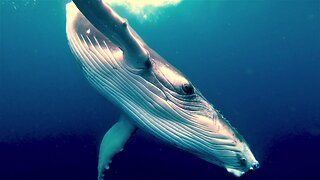 1:46
1:46
WildCreatures
1 year ago $11.12 earnedBaby humpback whale puts on acrobatic show for thrilled swimmers
10.9K62 -
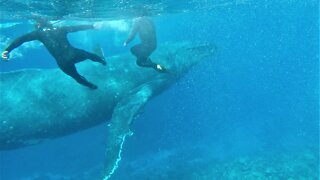 0:46
0:46
WildCreatures
1 year ago $9.68 earnedHumpback whale pod nearly collides with swimmers in Tonga
10.6K21 -
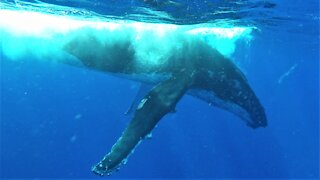 1:32
1:32
WildCreatures
2 years ago $12.79 earnedHumpback whales surface to breathe beside thrilled swimmers in Tonga
22.4K84 -
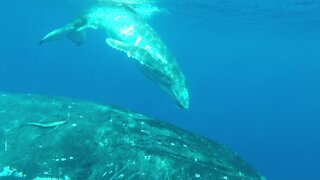 1:43
1:43
WildCreatures
2 years ago $6.15 earnedMother humpback whale brings her baby close to swimmers in Tonga
10K35 -
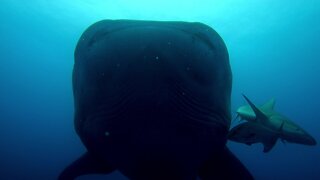 1:39
1:39
GalapagosGuys
2 years ago $4.55 earnedGigantic whale shark cruises right over thrilled scuba diver
9.35K24 -
 0:20
0:20
Damojean
1 year ago $7.85 earnedCalm, Shallow Waters Are The Perfect Whale Nursery
3.68K7 -
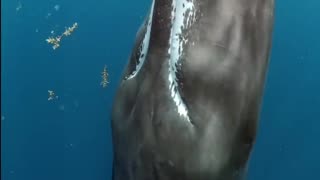 0:12
0:12
SECRETS OF THE SEA
1 year agoSLEEPING WHALE
13 -
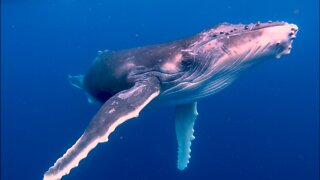 1:56
1:56
WildCreatures
2 years ago $8.12 earnedIncredible close up footage of baby humpback whale and his mother
12.8K37 -
 0:27
0:27
WildCreatures
1 year ago $31.64 earnedSleeping Lion Twitches As He Dreams In The Sunshine
9.3K22